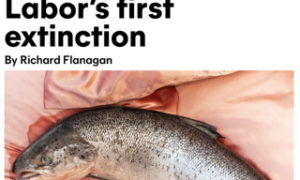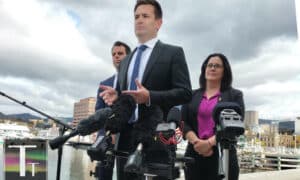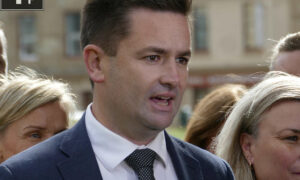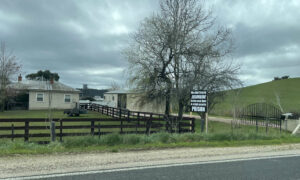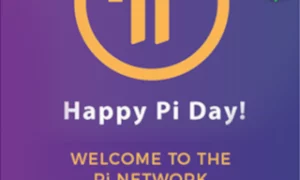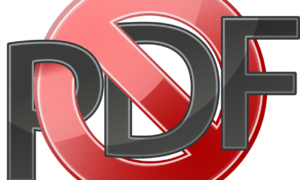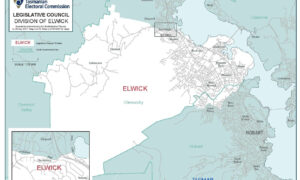Media release – Salmon Tasmania, 10 February 2024
Salmon Tasmania has publicly released its submission to the Federal Government’s review of a 2012 decision on salmon farming in Macquarie Harbour
The submission details clearly that there is no scientific evidence that demonstrates removing aquaculture from Macquarie Harbour will ensure the future of the Maugean skate in its endemic habitat, and there is absolutely no legal justification for the Australian Government to reverse its 2012 decision on salmon farming in the harbour.
The submission also includes new scientific analysis demonstrating the minimal impact of aquaculture on oxygen levels in the natural environment for the Skate.
Salmon Tasmania CEO, Luke Martin, said it was important for the Tasmanian community to have direct and immediate access to the industry’s response.
“Tasmania’s salmon industry is highly regulated, informed by some of the best marine scientists in the world, and uses the most advanced technology available,” Mr Martin said.
“We are committed to transparency with the Tasmanian community, and releasing our submission today so anyone who is interested in aquaculture, or is genuinely concerned about the Skate, can see the facts for themselves, and can have confidence that our industry’s presence in Macquarie Harbour is not a critical threat to this endangered species.
“We are confident our industry not only has a long-term future in Macquarie Harbour, but our industry’s presence on the west coast means we can have a genuinely positive impact and invest in the effort to secure the skate.
Mr Martin said the submission injected balance and factual information into an increasingly misleading public debate.
“There is no doubt activist groups have cherry-picked conservation reports in their vexatious pursuit of lawfare through the EPBC legislation, purely to attack the reputation of our industry.
‘This campaign is causing tremendous uncertainty and stress for the residents of Strahan and the broader community of the north-west coast, and it must now stop.
Mr Martin said the industry submission demonstrated how compliance with a robust and independent regulatory framework has significantly changed the industry’s scale and impact within the harbour compared to 2012.
“Indeed, the decision made in 2012 that is now being reviewed by Minister Plibersek was to expand the industry from around 10,000 tons of production at the time to over 20,000 tons per annum. This expansion was completely reversed, and production is now capped at no more than 9,500 tons in the Harbour.
“In 2012 there was no independent EPA regulating the harbour. Today there is.
‘The innovation and investment of the industry to reduce its nitrogen levels has dramatically advanced over the past decade.
“Put simply, the industry has changed significantly since 2012, and is being regulated and managed effectively for the harbour.
“The industry has always taken its role in the harbour very seriously, and we have looked closely at the impact we are having on dissolved oxygen levels in the harbour and opportunities to further strengthen our sustainability practices.
“Much of the research informing the sharpened focus on the Maugean skate was initiated and funded by the salmon aquaculture industry.
“We have now committed to an unprecedented $7 million oxygenation project beginning in the harbour this month, offsetting the oxygen drawdown of our aquaculture.
‘This is not just about offsetting our impact, but proving the effectiveness of this technology in the unique Macquarie Harbour system as a potential strategy to stimulate oxygen levels in warming weathers and to offset other industrial and natural influences.
Mr Martin said the submission also included new and critical analysis into aquaculture’s impact on the harbour.
“New independent modelling by Dr Ian Wallis shows the minimal impact aquaculture is actually having on the oxygen levels in the harbour – it’s as little as 4 per cent in the top level of the water system, and 10 per cent at depth.
“This is the science, and the fact of the matter is aquaculture is absolutely not a major influence in the oxygen levels in the harbour, or the declining population levels of the skate.
Mr Martin urged Minister Plibersek to proceed with a rapid decision on the review and end the uncertainty for the workers, families, businesses and communities of north-west Tasmania.
“You do not need to be a marine scientist to understand Macquarie Harbour is a complex environment and the Maugean skate is a unique species vulnerable to a range of influences, including warming waters, introduced species and industrial legacies.
“It has always been disingenuous to focus the attention solely on salmon, and it’s time the Federal Minister ends this confusing EPBC process and let the experts get on with the job of securing the future of the Maugean skate.”
Media release – Neighbours of Fish Farming, 10 February 2024
Atlantic salmon industry takes leaf out of climate denialist playbook.
The overwhelming evidence from scientists who have studied the health of Macquarie Harbour for many years clearly demonstrates the drastic impact of the Atlantic salmon industry on the waterway’s health and the declining population of Maugean skate.
Now the multinationals who own the Atlantic salmon business in Tasmania are taking a leaf out of the climate denialist playbook.
The waterway’s future must be determined by independent science, not through cherry-picking conclusions by hired consultants producing outlier reports that conflict with highly-skilled, experienced and dedicated scientists who have studied the waterway and the skate for many years.
For Salmon Tasmania to fall back on one outlier report shows the desperation of foreign-owned salmon companies that avoid paying tax, have no stake in Tasmania’s future and wish to protect the profits they take offshore.
The salmon industry is seeking a way out of its culpability for driving the Maugean skate toward extinction, for the damage it is doing to the waterway’s health and for the impact it is having on Tasmania’s reputation as a source of clean and sustainable produce.
When lobbyist Salmon Tasmania speaks of protecting industry families, it’s not Tasmanian families it’s protecting but the Brazilian Batista family and the Canadian Cooke family who pull Salmon Tasmania’s strings and reap profits at the expense of Tasmanians and their precious waterways.
Who can trust companies like Huon – owned by Brazilian JBS – and Tassal – owned by Canadian Cooke Aquaculture – with Tasmania’s heritage when both have shocking environmental global records?
When they’ve finished their destructive practices in Macquarie Harbour and they can no longer sustain their salmon feedlots, they’ll walk away without a backwards glance at the workers they leave behind – and without reparations for the damage they’ve inflicted.
NOFF submission to ECPB review here
Salmon Tasmania submission here
Media release – Australian Workers’ Union, 12 February 2024
Plibersek must now choose: back Tasmanian blue-collar jobs or bow to activist hysteria
The Australian Workers’ Union is urging Federal Environment Minister Tanya Plibersek to end the uncertainty over the future of salmon in the Macquarie Harbour and make a hard call: back blue-collar jobs or bow to hysterical environmental activists.
A federal review into aquaculture in Macquarie Harbour is currently taking place, after environmental activists claimed it was incompatible with the continued existence of the Maugean skate.
But AWU Assistant National Secretary Kade Wakefield said the activist claims were massively overblown and that modern technology and adaptive management could allow aquaculture and the skate to happily coexist.
“There is no rational, scientific evidence that the salmon industry and the Maugean skate can’t live happily side-by-side in Macquarie Harbour,” Mr Wakefield said.
“Even if it is true that salmon farming has affected skate numbers in the past, the solution lies in ongoing cooperation to manage the harbour using modern technology and techniques. We absolutely do not need to consider the callous and wholesale abolition of hundreds of blue-collar jobs and hundreds of millions of dollars.
“The government has been dragging its heels on this review but at the end of the day Tanya Plibersek will have to decide what she thinks is more important: the livelihoods of blue collar regional Tasmanian families or the overblown concerns of inner-city activists about a fish they’ve decided to make famous.
“It’s funny how inner-city activists are very nuanced when it comes to their own environmental impact through things like air travel. But when it’s just the livelihoods of lowly blue-collar workers on the line, well suddenly they’re very comfortable calling for the most extreme option.
“The Tasmanian salmon industry is world-leading in its environmental monitoring and compliance activities – for instance, in the use of biomass and nitrogen caps. This is a highly technical, responsible and ethical industry that all Tasmanians – and all Australians – should be proud of.
“Our globally famous salmon earns Tasmania over a billion dollars a year. Given the economic situation in this state we can’t allow Canberra to trash our successful successful industries at the whim of environmental activists.
“As the Prime Minister has previously noted in Tasmania, the aquaculture industry and the Maugean skate could coexist. So let’s get that solution on the table so that workers in this community can exhale and get on with their lives.”
Janie Finlay MP, Shadow Minister for Primary Industries and Water, 12 February 2024
Only Tasmanian Labor genuinely backs salmon industry
Tasmanian Labor has made a submission to the Federal Government’s review of salmon farming in Macquarie Harbour, reiterating our strong support for the state’s salmon industry.
Salmon farming is important to Tasmania and communities like the west coast. We are confident that the industry and the jobs it creates can coexist with Maugean skate in Macquarie Harbour.
It is clear there are many factors at play when it comes to the skate population and I remain confident this review will shine a light on this.
The industry has acted quickly and committed $6 million for a major oxygenation project in Macquarie Harbour in a determined effort to protect the skate – and adheres to strict environmental standards.
Tasmanian Labor backs in calls of Australian Workers’ Union assistant national secretary Kade Wakefeld that current oxygenation trials are fast tracked and that Hydro Tasmania is ordered to develop a program to regulate river flows into the harbour.
Our submission calls for the social impacts of the decision on the west coast community to be considered alongside the science, with time allowed for the effectiveness of the oxygenation project to take place.
Of course, we understand that Minister Plibersek has a legal process to go through, but families are on the line here. We need a timely, correct decision.
Jeremy Rockliff’s calls for a decision by the end of March – nearly two months away – is simply more of the indecisiveness we’re seeing with his early election threats. Workers on the west coast need a positive outcome much sooner than that.
And let’s not forget, the greatest uncertainty to land at the feet of industry was the Liberals’ moratorium.
That anti-industry disaster created a void for activists to rise up and threaten this incredible Tassie industry – and it should never be allowed to happen again.
Only Tasmanian Labor genuinely backs the salmon industry and we look forward to working with the sector and community to ensure it continues to be a pillar of our regional communities and the Tasmanian economy.
Media release – AWU’s cynical vote harvesting, over Macquarie Harbour, 12 February 2024
The stunning hypocrisy of the national AWU wading into the controversy over Macquarie Harbour is predictable and desperate. (The Mercury, Feb 12, 2024)
With a state election looming, the AWU is less interested in looking after the long-term welfare of West Coast workers than in short-term political gain.
“Trotting out well-worn, hollow insults about ordinary Tasmanians as ‘hysterical activists’ doesn’t persuade anyone,” says Peter George, NOFF president.
“That battle has already been lost as the majority of Tasmanians reject the salmon industry’s destructive practices amid a rising threat to the health of Macquarie Harbour and the future of Maugean skate.
“This outburst from the AWU’s mainland HQ is all about desperately attracting every last blue-collar vote for Labor in looming state elections.
“In doing so, the AWU is doing the bidding of foreign-owned salmon companies with destructive environmental records, that avoid paying Australian tax and take their profits overseas.
“Those companies will walk away from Macquarie Harbour as profits fall in the face of warming waters and unsustainable practices.
“The AWU should be looking after the long-term interests of industry workers on the West Coast who deserve the AWU’s support – and the support of all Tasmanians – in transitioning to sustainable industries.”
Voting war hots up over salmon workers
In one more indication Tasmania is sliding towards an early election, Premier Jeremy Rockliff has launched the Liberal Party’s west coast campaign with empty threats towards the Federal Government’s review of industrial salmon in Macquarie Harbour.
“In calling for a speeded-up scientific review of the impact of the industry on the harbour and Maugean skate’s potential extinction, Mr Rockliff is hoping to gain a head start in looming elections by offering hollow encouragement to West Coast workers,” says Peter George, president of NOFF.
“Any caring, effective government would have started the process of transitioning to sustainable jobs and industries on the West Coast years ago.
“This is a potential crisis of the government’s own making created by a failure of process, foresight and wilful ignorance.
“By trying to shift blame on to a mandatory, Federal process of scientific review, the Premier is cynically manipulating West Coast workers under the guise of advocating for them.
“It’s politics 101 and persuades no one.”



